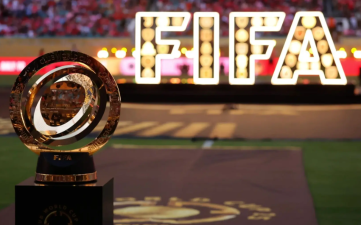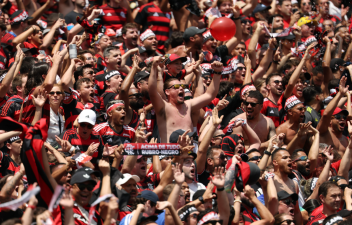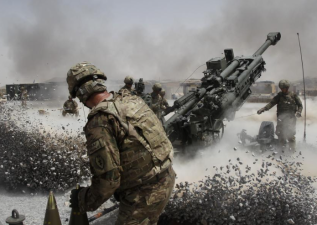2025 FIFA Updates: Shocking Team Eliminations This Week
The 2025 FIFA Club World Cup is the 21st FIFA Club World Cup, hosted by the International Football Federation (FIFA).
The 2025 FIFA Club World Cup is the 21st FIFA Club World Cup, hosted by the International Football Federation (FIFA). The Club World Cup will be held in the United States from June 15 to July 14, 2025.
In the group stage of the 2025 FIFA Club World Cup, 32 teams will be divided into 8 groups of 4 teams each. The top two teams in each group will advance to the round of 16. [3] From the 1/8 finals onwards, a single-elimination system will be adopted until the final. There will be no third-place playoff.
On March 6, 2025, FIFA officially announced that the prize money for the 2025 Club World Cup will be US$1 billion. On July 13th, the final took place at MetLife Stadium in New York/New Jersey, with Chelsea defeating Paris Saint-Germain 3-0 to win the first Club World Cup title since the club's reform.

Knockout Stage Matches:
Key Matches and Key Players
The two confirmed quarterfinal matchups are a clash of titans: the Brazilian derby between Palmeiras and Botafogo, and the ultimate clash between Paris Saint-Germain and Inter Miami.
- The most anticipated clash is undoubtedly the one between Messi and Inter Miami. This matchup is rife with drama: Messi will face his former club, the Paris Saint-Germain team he played for two years. Since moving to Inter Miami in 2023, Messi has demonstrated incredible dominance in Major League Soccer, helping the team win the UEFA Cup.
- This clash will be not only a battle of skills and tactics, but also a clash of emotions. Under Luis Enrique's coaching, Paris Saint-Germain has moved away from its reliance on superstars and developed a more balanced tactical system. Messi's performance in Miami proved that, even at 36, he remains one of the most threatening players on the planet.
- Another confirmed matchup—Palmeiras vs. Botafogo—is also worth watching. These two Brazilian teams represent the pinnacle of South American football, and their clash will showcase the unique technical sophistication and tactical flexibility of South American football.
Depending on the tournament format, other potential matchups are also highly intriguing. Real Madrid is likely to face the top or runner-up of Group H in the round of 16, meaning their opponent will likely be Manchester City or Juventus—either of which will be a tough match.
Real Madrid's Challenge:
Critical Analysis from the Group Stage to the Knockout Stage
- As the kings of European football, Real Madrid carries enormous expectations in this Club World Cup. Their performance in the group stage will directly impact their fate in the knockout stage. As things stand, Real Madrid needs to secure qualification in the final group stage, and their performance will determine whether they advance as group winner or runner-up. If Real Madrid were to face Manchester City in the knockout stage, it would be a truly formidable clash. Guardiola's Manchester City have demonstrated unparalleled dominance over the past few years, and their possession-based style of play and high-pressure play will pose a stern test to Real Madrid's defense. Whether the attacking trident of Mbappé, Vinicius, and Bellingham can penetrate City's defense will be the key factor in determining the outcome of the match.
- Against Juventus, Real Madrid will face a completely different challenge. The Italian team is known for its defensive prowess, and their tactical discipline and cohesiveness will test Real Madrid's patience and creativity. In this scenario, Real Madrid will need to be more patient and adaptable to avoid becoming bogged down in positional play.
- From a tactical perspective, Real Madrid will need to focus on several key areas in this FIFA Club World Cup: first, defensive stability. Facing opponents with varying styles, the backline's adaptability is crucial. Second, offensive efficiency. Seizing opportunities within a limited playing time will determine the outcome. Finally, rotation strategy. Effective player rotation will help the team maintain competitiveness amidst a packed schedule.

A Global Perspective:
The Impact of the FIFA Club World Cup on Global Football
The 2025 FIFA Club World Cup's significance goes far beyond the innovation of a single tournament; it is reshaping the global football landscape. The expansion of the tournament not only provides a showcase for teams from more regions but also promotes the globalization of football.
From a commercial perspective, the new format brings enormous commercial value. The participation of 32 teams means more matches, a longer tournament cycle, and greater global attention. This provides sponsors with unprecedented exposure and rich content resources for broadcasters. It is estimated that the commercial value of this FIFA Club World Cup will reach billions of dollars.
The cultural impact is equally profound. The clashes between teams from different continents will promote the exchange and integration of football cultures. European technical and tactical philosophies, South American skill styles, African physicality, and Asian teamwork—these diverse football philosophies will collide on the same stage, creating an unprecedented viewing experience for fans around the world.
For individual players, the FIFA Club World Cup provides an opportunity to showcase their skills on a higher platform. Players from non-European leagues can prove their skills through this tournament and potentially gain transfer opportunities to top leagues. This flow of talent will further elevate global football standards.
In the long term, the Club World Cup is expected to become a club-level World Cup, its influence and visibility continuing to grow. This will not only alter clubs' schedules and commercial strategies, but also impact player career development and the transfer market.


